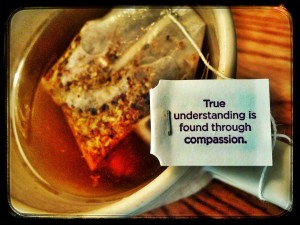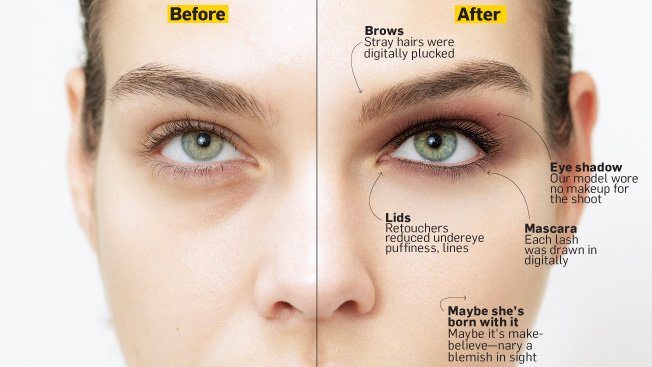Christmas is quickly coming upon us — at least those of us who celebrate the holiday. True believers, and by that I do not necessarily mean believers in Truth, will have us know that this is the time when we celebrate the birth of their favorite martyr, Jesus Christ. They will tell you that the focus of this holiday is meant to be upon the deeds and messages of the Christ, and they will occasionally complain about the commercialized nature of the holiday. On that last point, I agree with them wholeheartedly. Too many people seem to believe that Christmas is about celebrating excess consumerism, branded marketing and petty indulgences. Yet the real meaning of the holiday isn’t exactly either of those extremes.
Continue reading The True Meaning of Christmas, or Don’t Let Religion Ruin the Holidays
Tag Archives: misinformation
Rejecting Research Is Never a Good Option
As a person living with cancer, I get suggestions all the time to look at non-medical treatments. By this, I mean mainly nutritional or holistic approaches that are meant to directly replace the use of “Western” medicine. Each suggestion comes with an anecdotal reference to someone who was “cured” by these methods, which range from the clearly bizarre to sensible health choices. Digging deeper, of course, reveals that every verifiable success story includes the use of early surgery or extensive chemo and radiation therapies.
And none of them, so far, have applied directly to my particular brand of cancer.
It doesn’t bother me so much to
Cheap Wisdom: Not Worth Anything.

realize that compassion MEANS the attempt to understand, not only does it become clear that the quote lacks any substance whatsoever, but that it is also backwards. And this is indicative of cheap wisdom, the intent of which is never to actually encourage thought, but rather to encourage passive acceptance. It becomes insidious when applied toward broader social aims, and is a tactic routinely used in politics as well as commercial advertising. Continue reading Cheap Wisdom: Not Worth Anything.
Alien Abductions: Not So Healthy
While reading The Skeptics Guide to the Paranormal, I was stunned to find a list of the common indicators that one has been abducted by aliens, only to realize that I could check off virtually every item. Anecdotally, it appears that the aliens have done an extraordinary job of both wiping my memory AND accounting for my lost time. I have also deduced that, by the standards required of numerous historical non-scientists, I am almost certainly the victim of numerous hauntings. And yet a part of me remains wary of either of these near-certainties.
The neglect & trivialization of violence against women is horribly wrong
Native American Women are disproportionately victimized without justice. This is horribly wrong. Domestic issues of victimization through forced prostitution are swept under the rug, with the prostituted frequently being punished when they are often the true victims. Often discussed dispassionately as a “global problem” with the thought that this sort of thing happens only in underdeveloped or backward nations, it is truly happening in every country and in virtually everyone’s backyard. Hyperbolic? Not particularly; it just depends how you define “backyard.” For the sake of this position, I will broaden it to mean “local community,” and challenge you, dear Reader, to find a community in the United States that does not have at least one instance of violence against women. Continue reading The neglect & trivialization of violence against women is horribly wrong
Photoshop: Unhealthy Images Are Bad For You
Email is ruinous

The United States Postal Service is a national treasure. A beacon of efficiency, the USPS has historically been the best and least expensive way to send correspondence or small packages. Now, however, it is being threatened with huge cuts. Some in the government have questioned its relevance in the 21st Century. But our postal system may actually be more relevant now than ever before.
The Art of Communication has faltered in the age of email and Twitter. People have gotten lazier and lazier in the name of character efficiency to the point where a limited number of characters has drained the character right out of typical tweets. Continue reading Email is ruinous
Panic: Very Unhealthy
Here is an interesting example that I came across online: Survival Joe’s Newsletter. It even comes with one of those handy newfangled barcode links for those of you who have a free smartphone in your hand as you read this.
Loaded Marketing Blog Posts, Just Plain Dangerous
Key Word Filler
It’s a glaring bit of reality that most – AND I DO MEAN MOST – blogs on this InterWeb Highway exist only to direct you to links intended to help their owners profit somehow. I’m not quite sure what makes the technology tick on these things, but when I am researching one topic or another for valid reasons entirely my own, I am disproportionately directed to web sites that make no sense whatsoever. These are “robo-sites” that have been culled by a computer program in order to appear original, or compiled by some worker in a far-off land who may or may not have an actual grasp of the language in which the web page is “written.”
You might even see a random list of keywords inserted for no obvious reason. Here is one such list, carefully designed for potential links. Continue reading Loaded Marketing Blog Posts, Just Plain Dangerous
Nutritional Claims: Don’t Believe the Hype
When a product claims to be “A good source of calcium!” – beware. Chances are that this is a smokescreen to get you to purchase an unhealthy product.
Seriously, suggesting that Product X is a good source of calcium is akin to stating that gin is a good source of water. Certainly, drinking 16 ounces of gin could be one way of getting a “serving” of water toward your daily quota. But is it the best way? Making gin your sole source of water would have disastrous consequences, at least for your liver. Probably also for your relationships and career, but that is another issue altogether.
A list of other candidates for a “good source” of water would necessarily include espresso, which is also a diuretic. This is the same sort of logic that many mega-brand corporate “food” packagers appear to follow Continue reading Nutritional Claims: Don’t Believe the Hype
